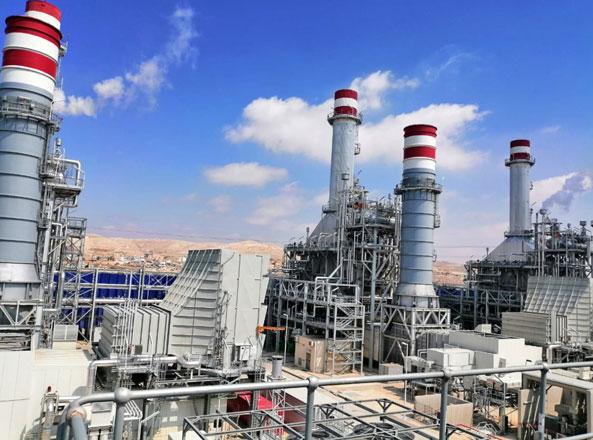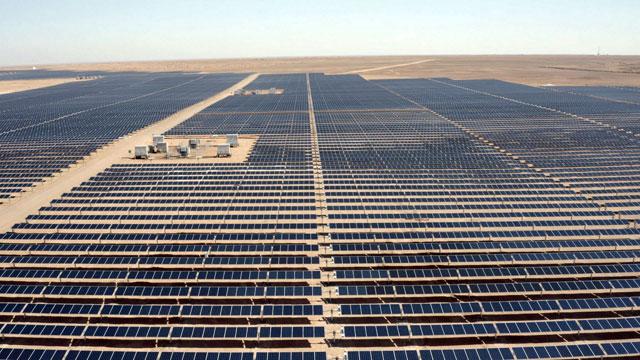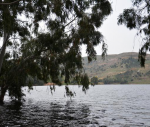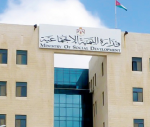You are here
ACWA Power Zarqa IPP enters commercial operations to add 485MW electricity to national grid
By JT - Apr 01,2019 - Last updated at Apr 01,2019

ACWA Power says on Monday that the National Electric Power Company began in September last year the commercial operations of its ACWA Power Zarqa combined cycle power plant (Photo courtesy of ACWA Power)
AMMAN — ACWA Power said on Monday that the National Electric Power Company (NEPCO) commenced commercial operations of its ACWA Power Zarqa combined cycle power plant on September 29, 2018.
The plant can generate up to 485 megawatts (MW), the equivalent electricity required to supply up to 350,000 Jordanian households. “The project is the most efficient thermal power plant in Jordan, capable of operating at over 51 per cent combined cycle efficiency, leading to lower fuel consumption and fewer emissions per megawatt-hour of electricity generated,” a statement from ACWA said.
The ACWA Power Zarqa plant deploys three 9E gas turbines, provided by GE (General Electric) Power, following an agreement executed in September 2016 with ACWA Power, the developer of the plant, and SEPCOIII Electric Power Construction Co. Ltd., which is the engineering, procurement and construction contractor, according to the statement.
The independent power project (IPP) supports Jordan’s Vision 2025 to boost economic growth and the Master Strategy of the Energy Sector of Jordan (National Energy Strategy) to drive stronger investments in private and public power projects to boost domestic energy generation by 40 per cent by 2020, the statement said.
President and CEO of ACWA Power Paddy Padmanathan was quoted in the statement as saying: “We are delighted to announce the launch of Zarqa CCGT plant, which reaffirms our commitment and contribution to the Jordanian power sector, economy and social development. The completion of construction and commencement of operations of the ACWA Power Zarqa plant represents our pragmatic approach to serving the power needs of growing countries and communities while increasing efficiency and delivering power at low cost. The fact that this project is capable of delivering electricity at one of the lowest tariffs in the country is a source of great pride to us.”
ACWA Power is a developer, investor and operator of a portfolio of power generation and desalinated water production plants currently with a presence in 11 countries including in the MENA, southern Africa and southeast Asia regions.
Mohamad Ali, president and CEO of GE’s Gas Power Systems – Projects business in the Middle East, Pakistan and India, said, “GE has supported the development of Jordan’s power sector for almost 40 years, with advanced solutions that bring high levels of operational efficiency and productivity. GE’s 9E gas turbines are an excellent fit for Jordan as they operate reliably and efficiently in extreme conditions such as desert heat and offer tremendous versatility and fuel flexibility, capable of running on more than 50 different kinds of fuels, thus allowing NEPCO to utilise more economical fuels and leading to lower costs of power production.”
Located to the northeast of Zarqa, the project is constructed next to the decommissioned Hussein Thermal Power Station. In addition to the three GE heavy-duty gas turbines, the power plant also features three heat-recovery steam generators and one steam gas turbine generator. The plant consists of six stacks, one for each gas turbine and HRSG. The natural gas for the project is supplied by NEPCO through a new gas pipeline connecting the project with Jordan’s main gas pipeline.
GE is the world’s digital industrial company, transforming industry with software-defined machines and solutions that are connected, responsive and predictive. GE is organised around a global exchange of knowledge, the “GE Store”, through which each business shares and accesses the same technology, markets, structure and intellect.
Related Articles
AMMAN — ACWA Power and the National Electric Power Company (NEPCO) on Monday signed an electricity purchasing agreement as part of a set of
AMMAN — ACWA Power and the National Electric Power Company (NEPCO) in Jordan officially announced on Wednesday that the 50-megawatt Risha So
AMMAN — Intensifying its support for Jordan’s solar power programme, the European Bank for Reconstruction and Development (EBRD) is extendin















